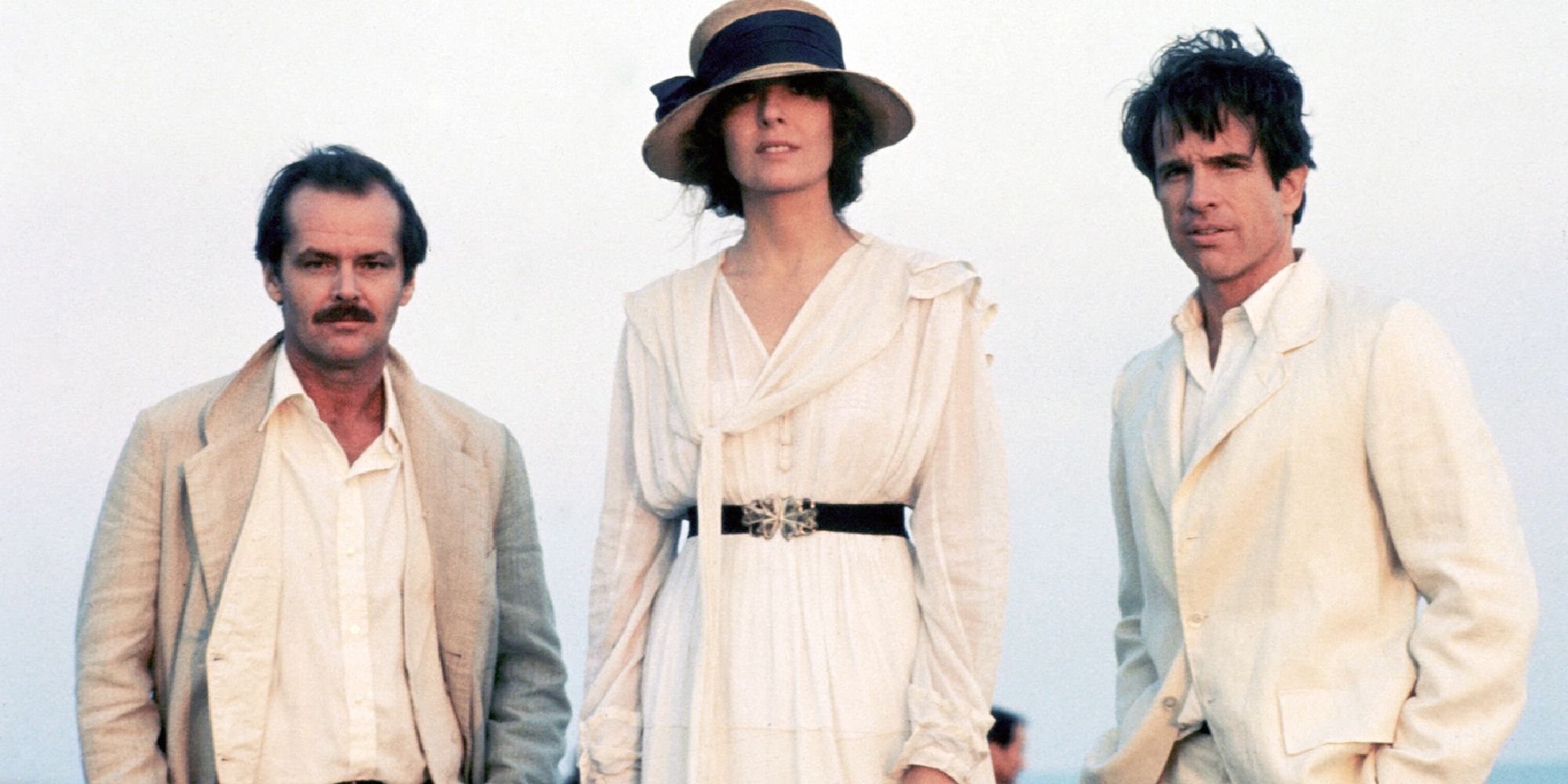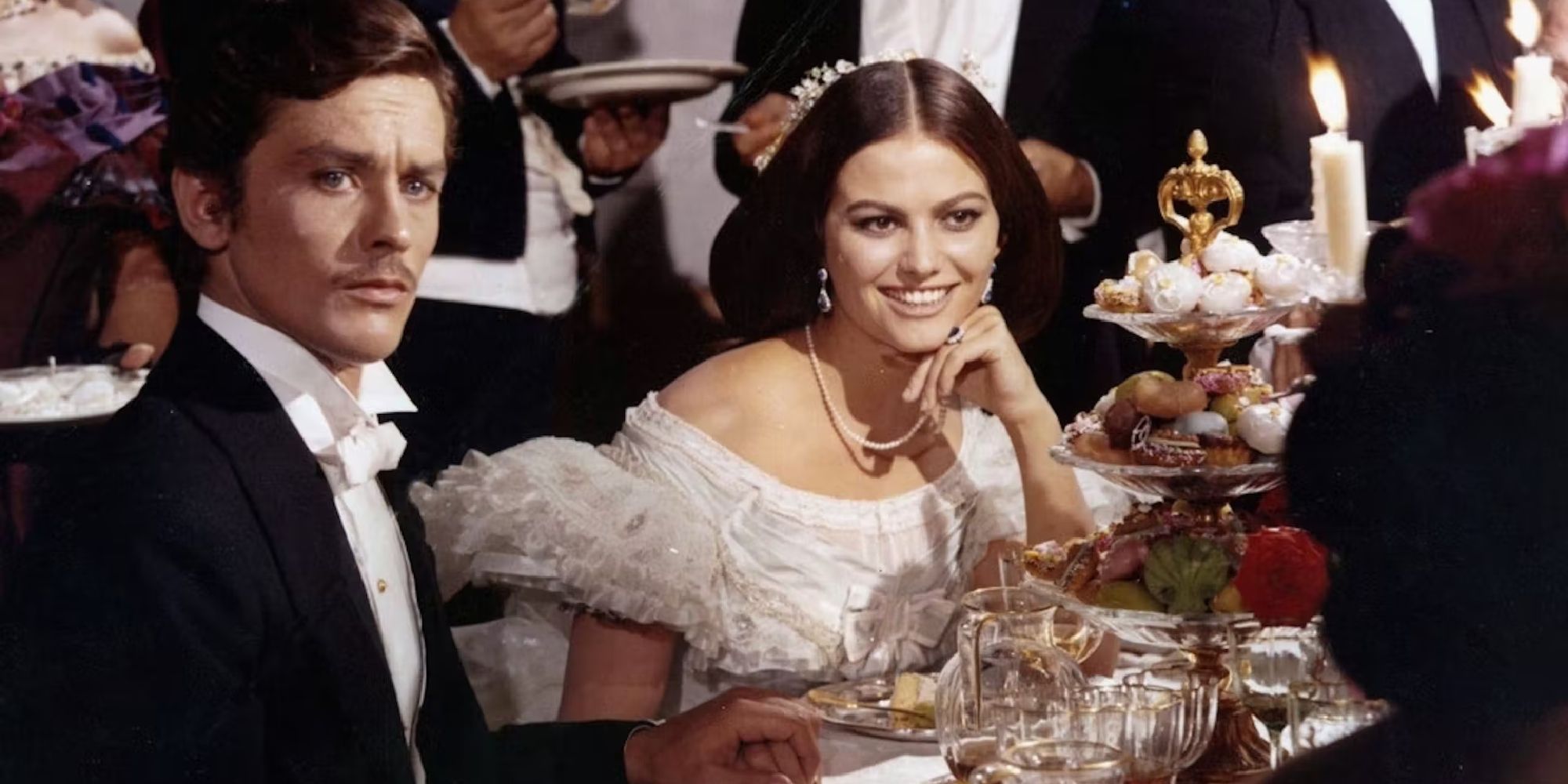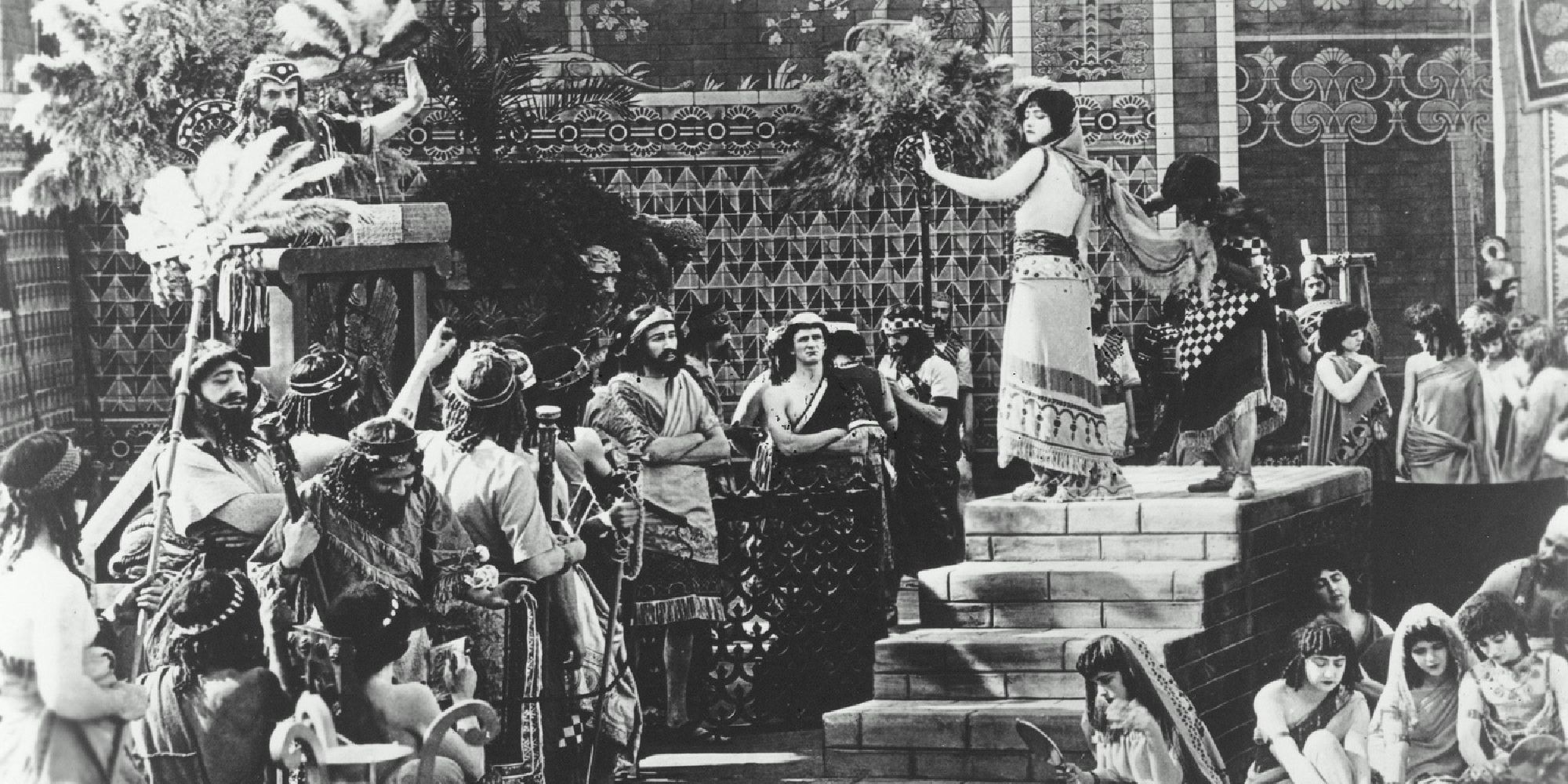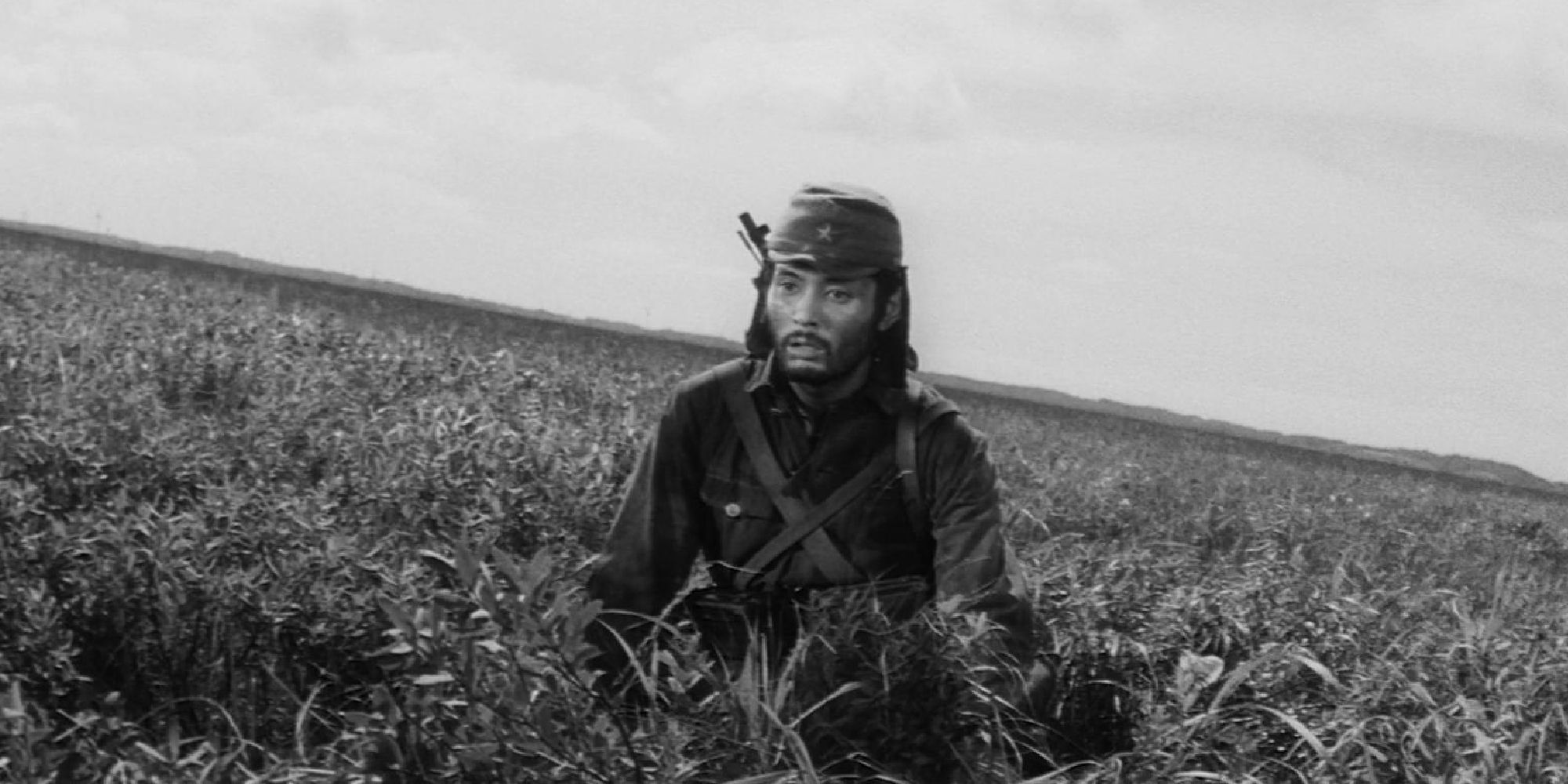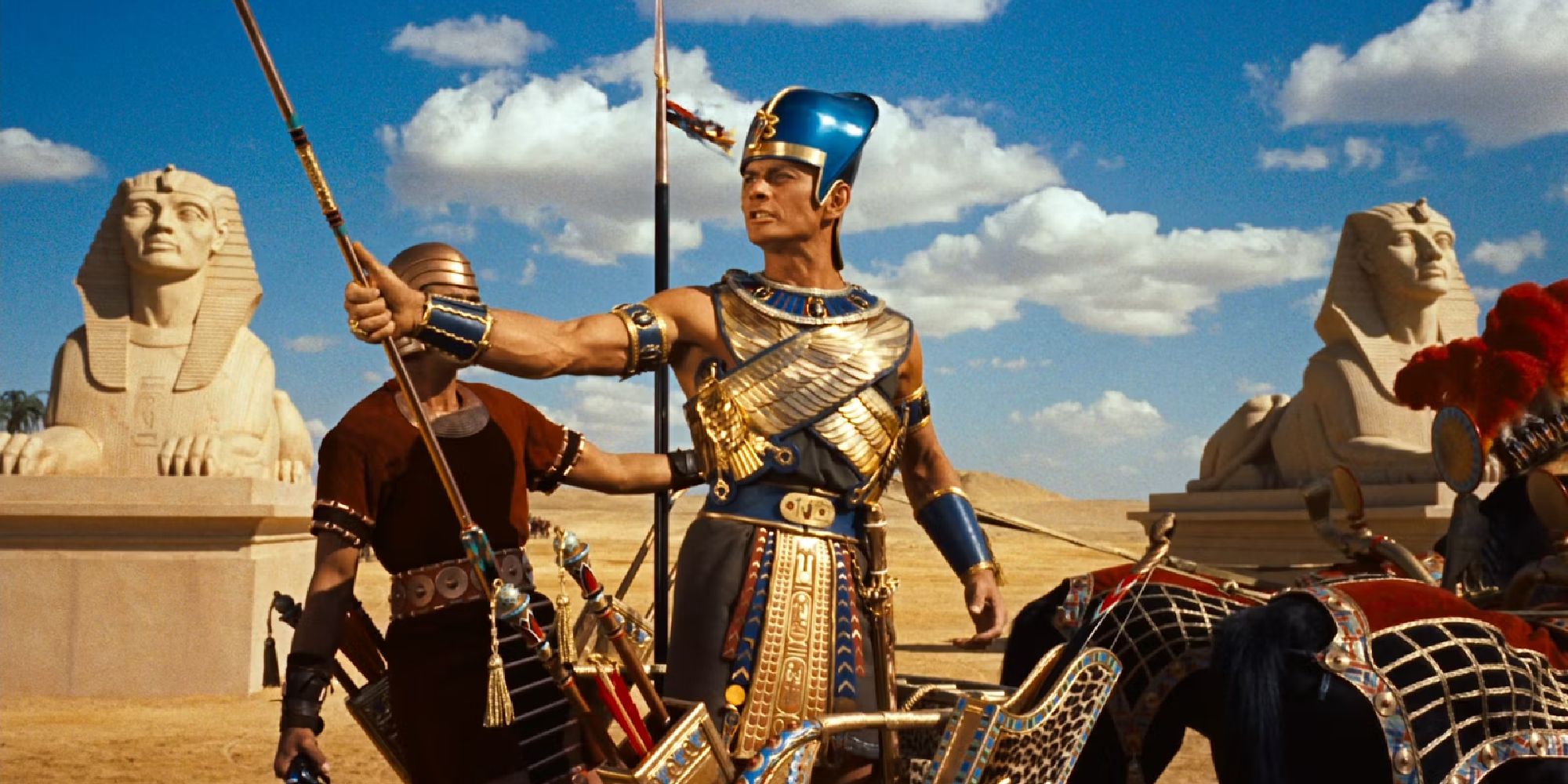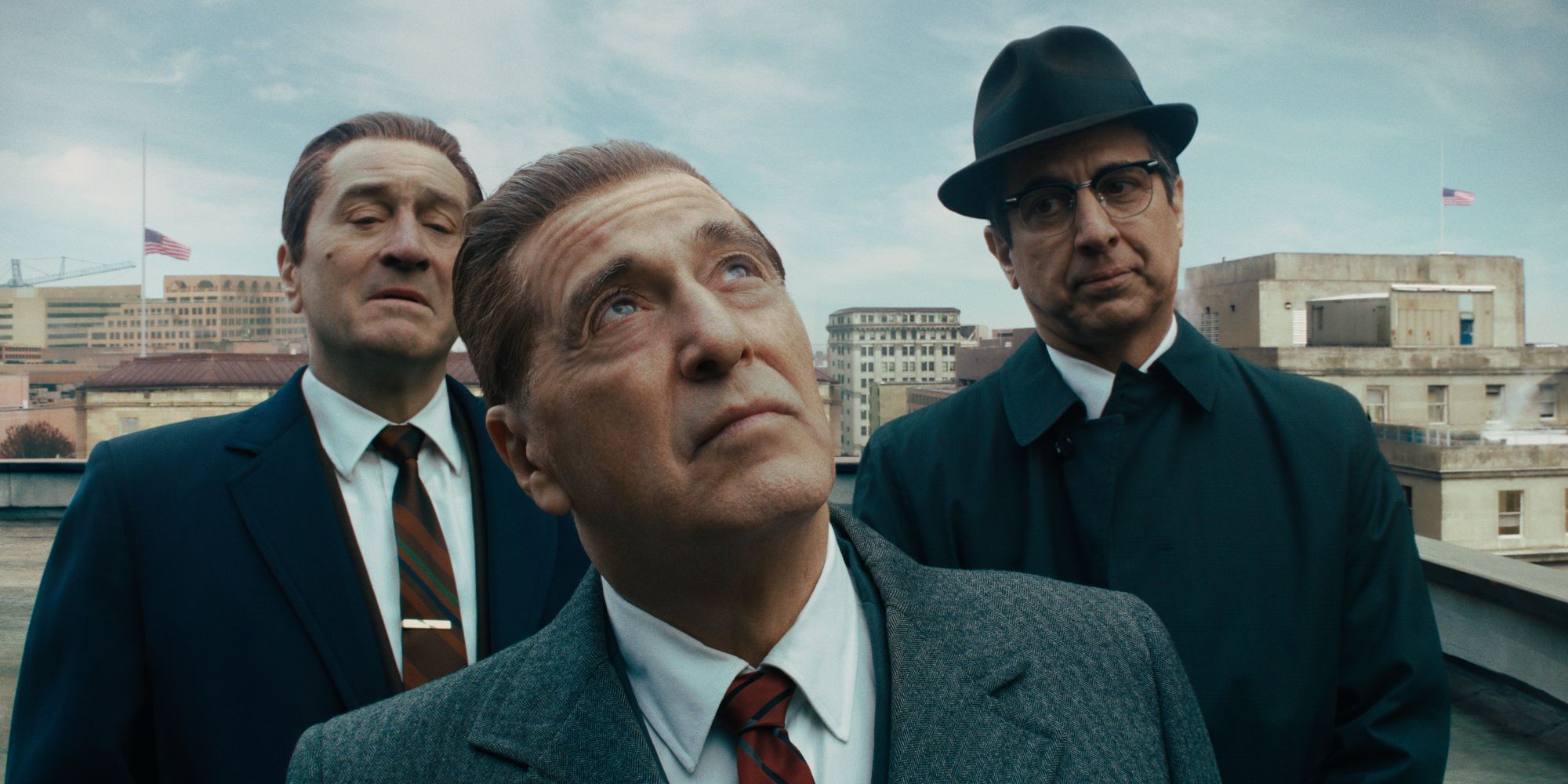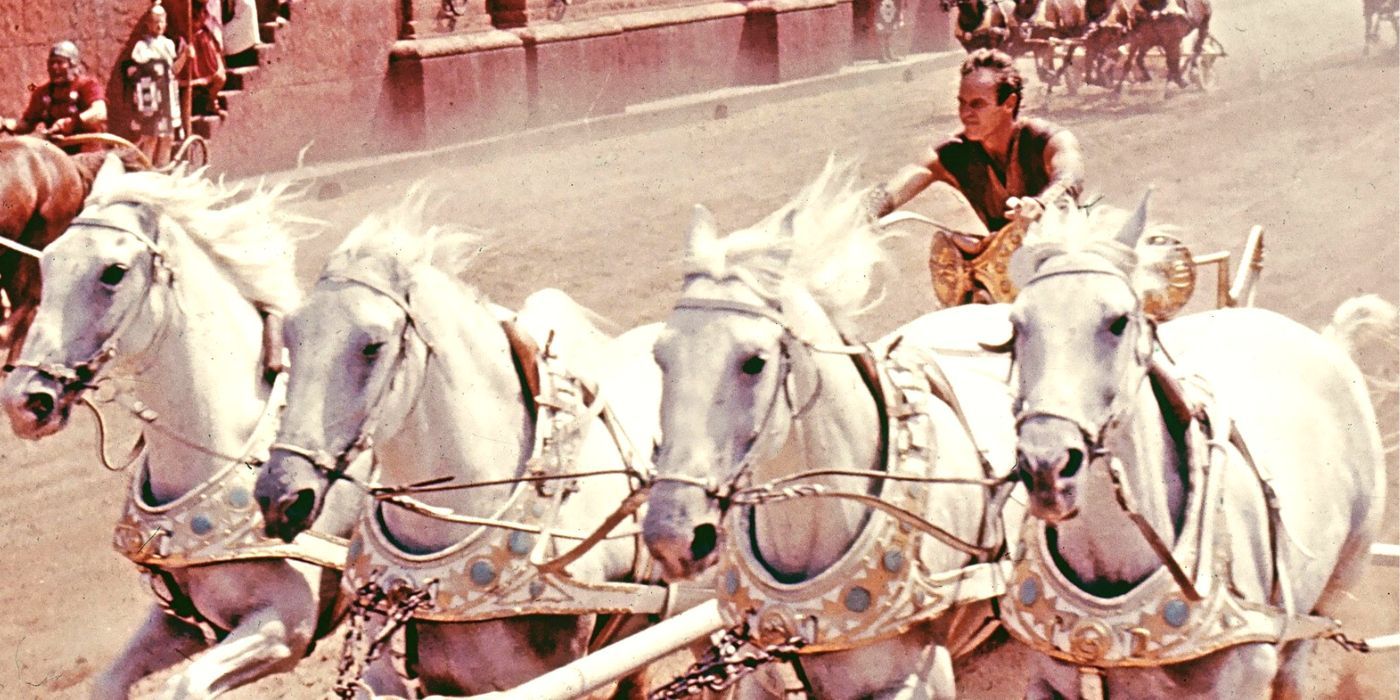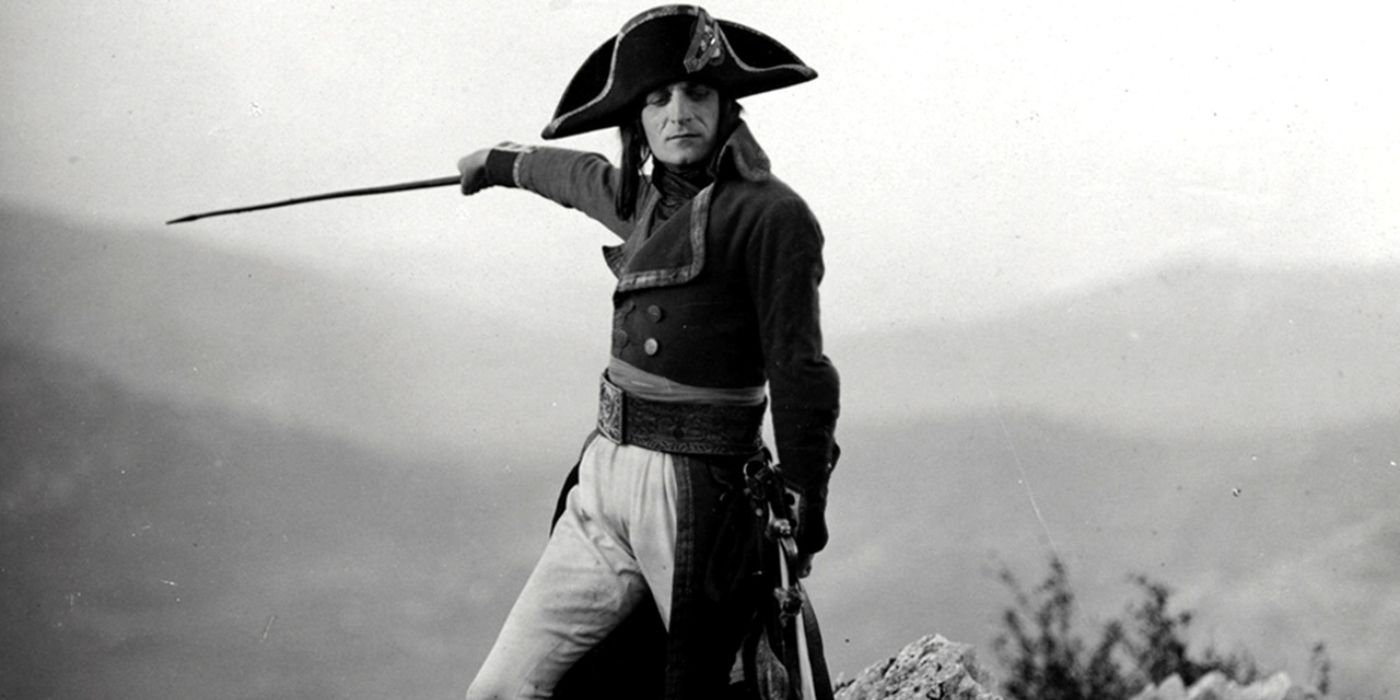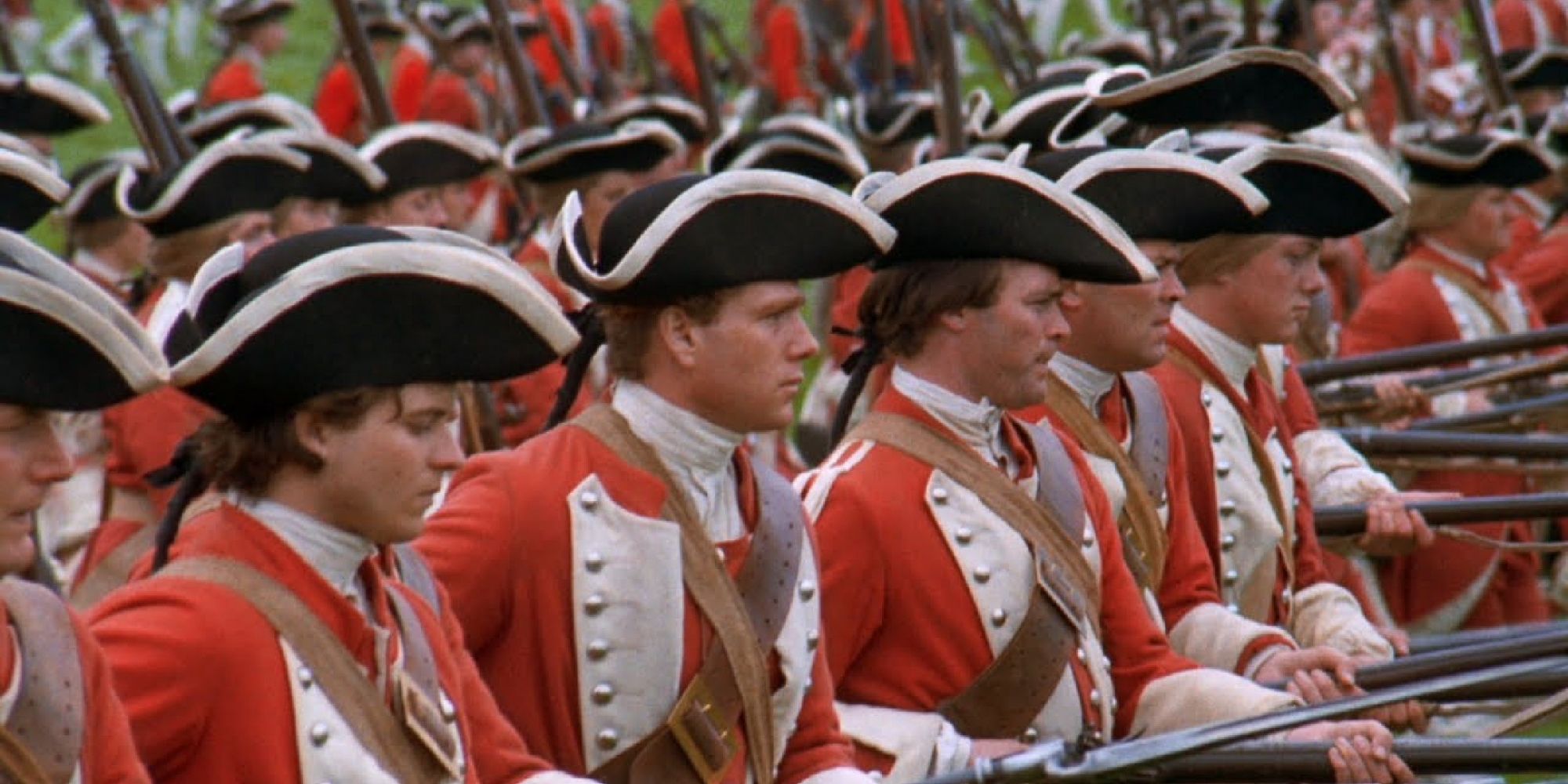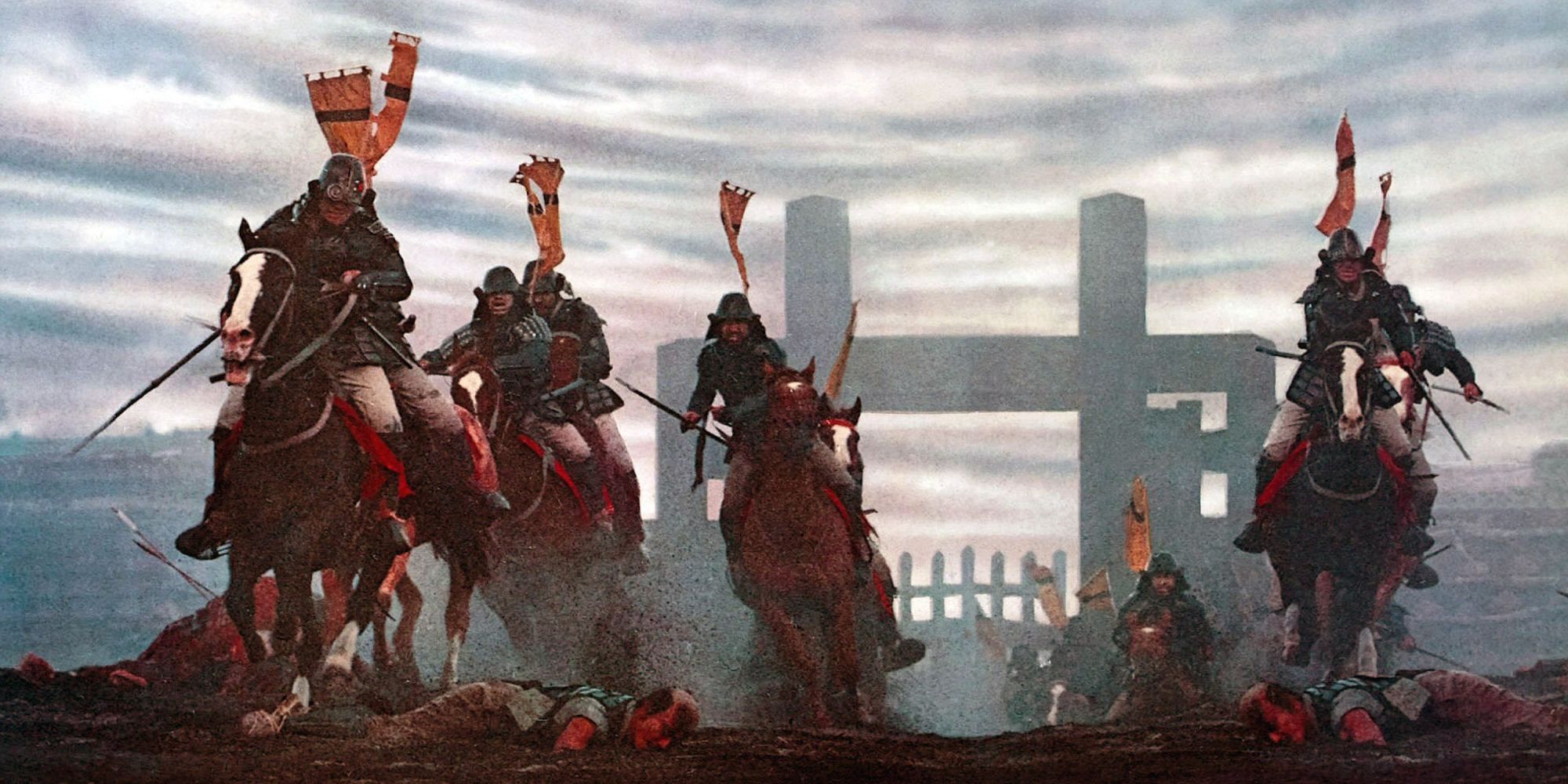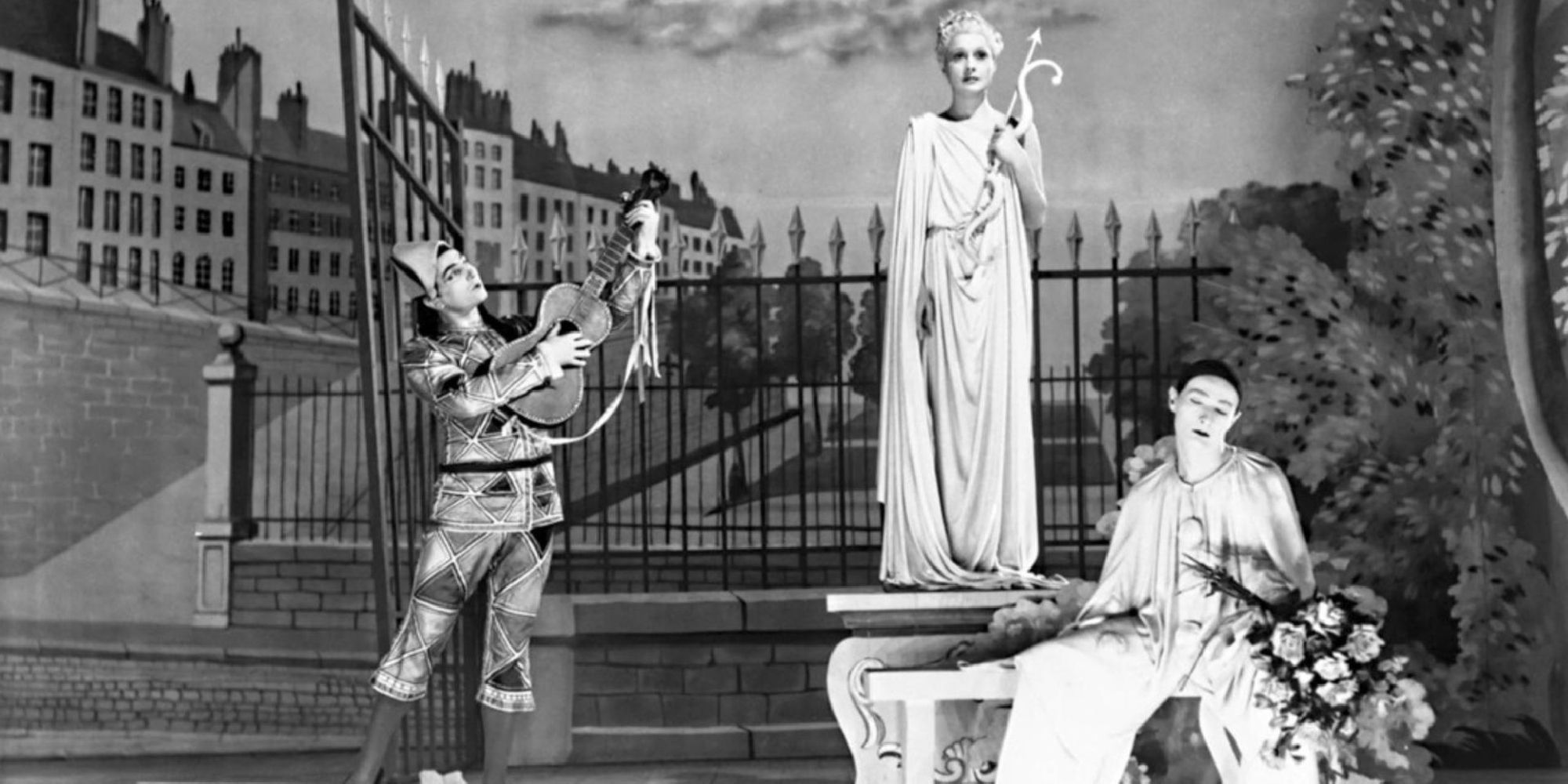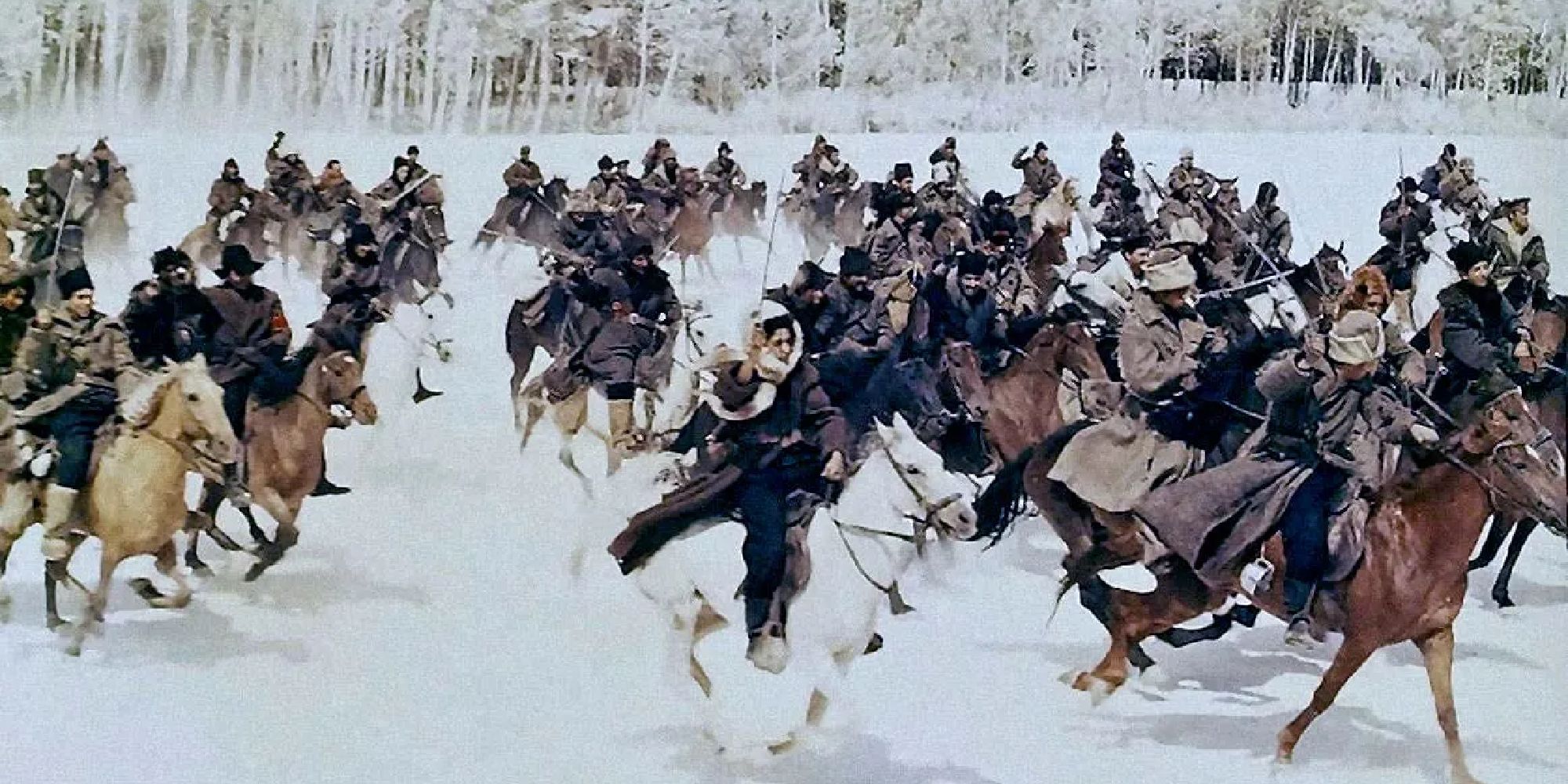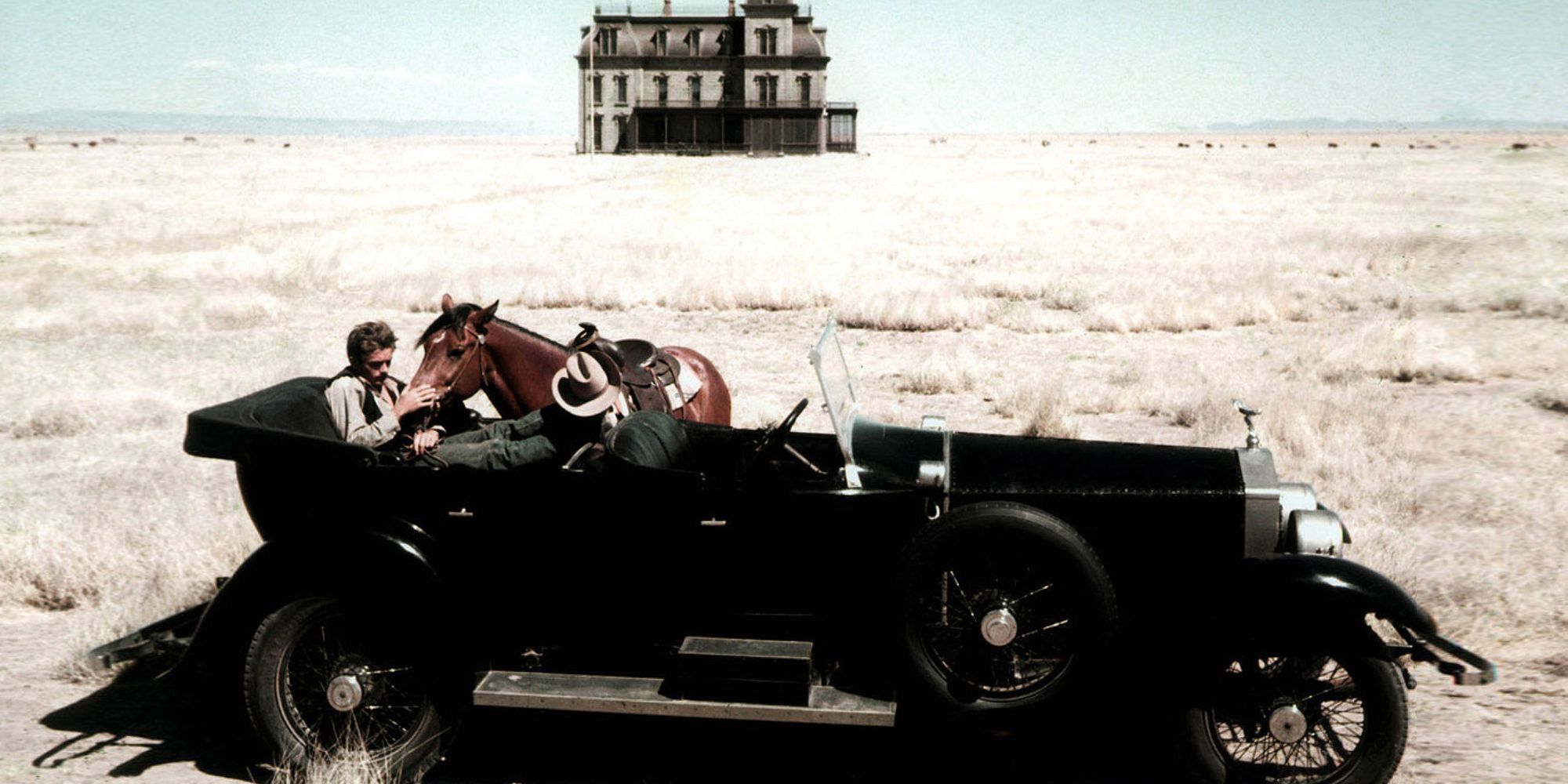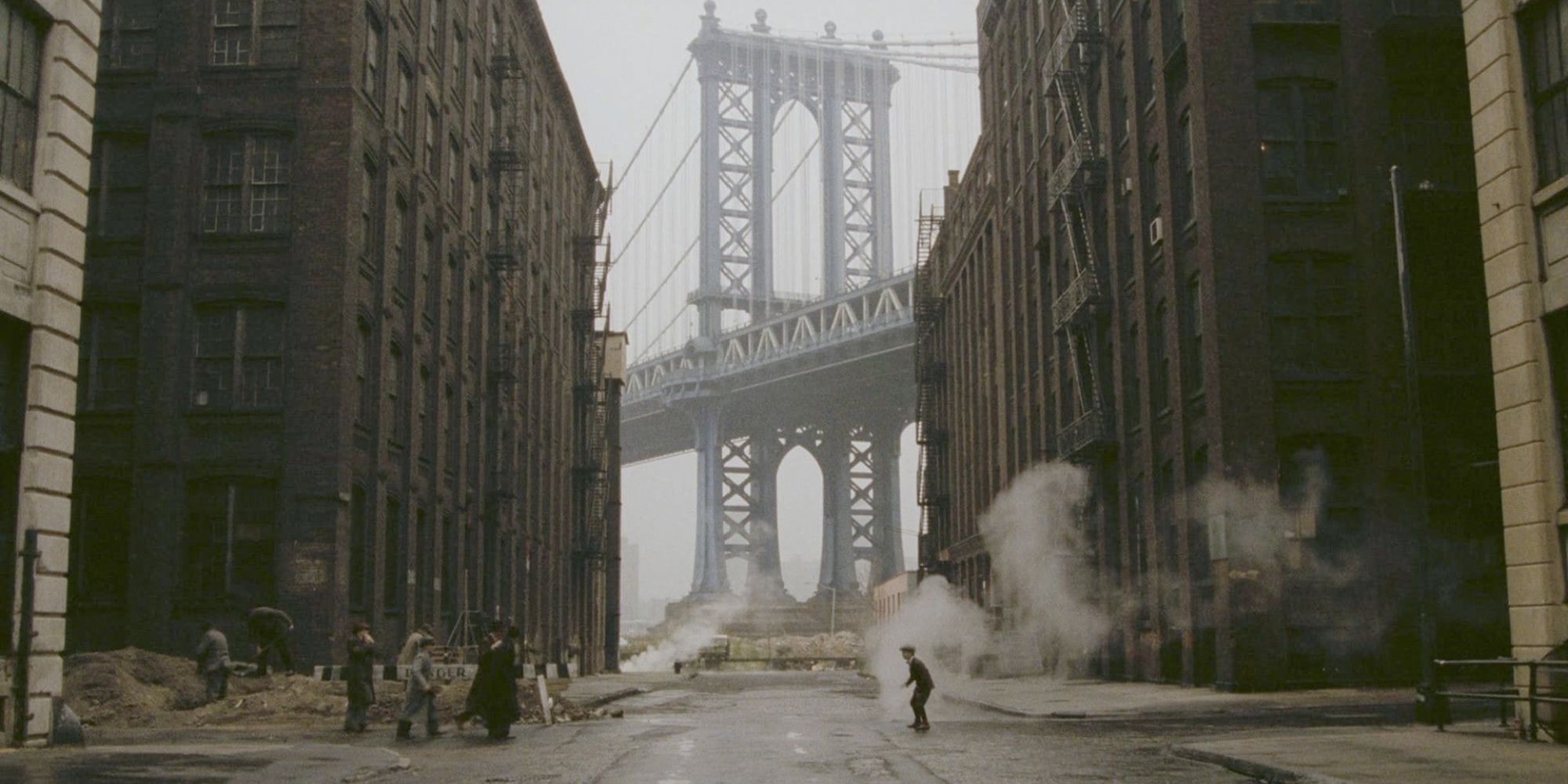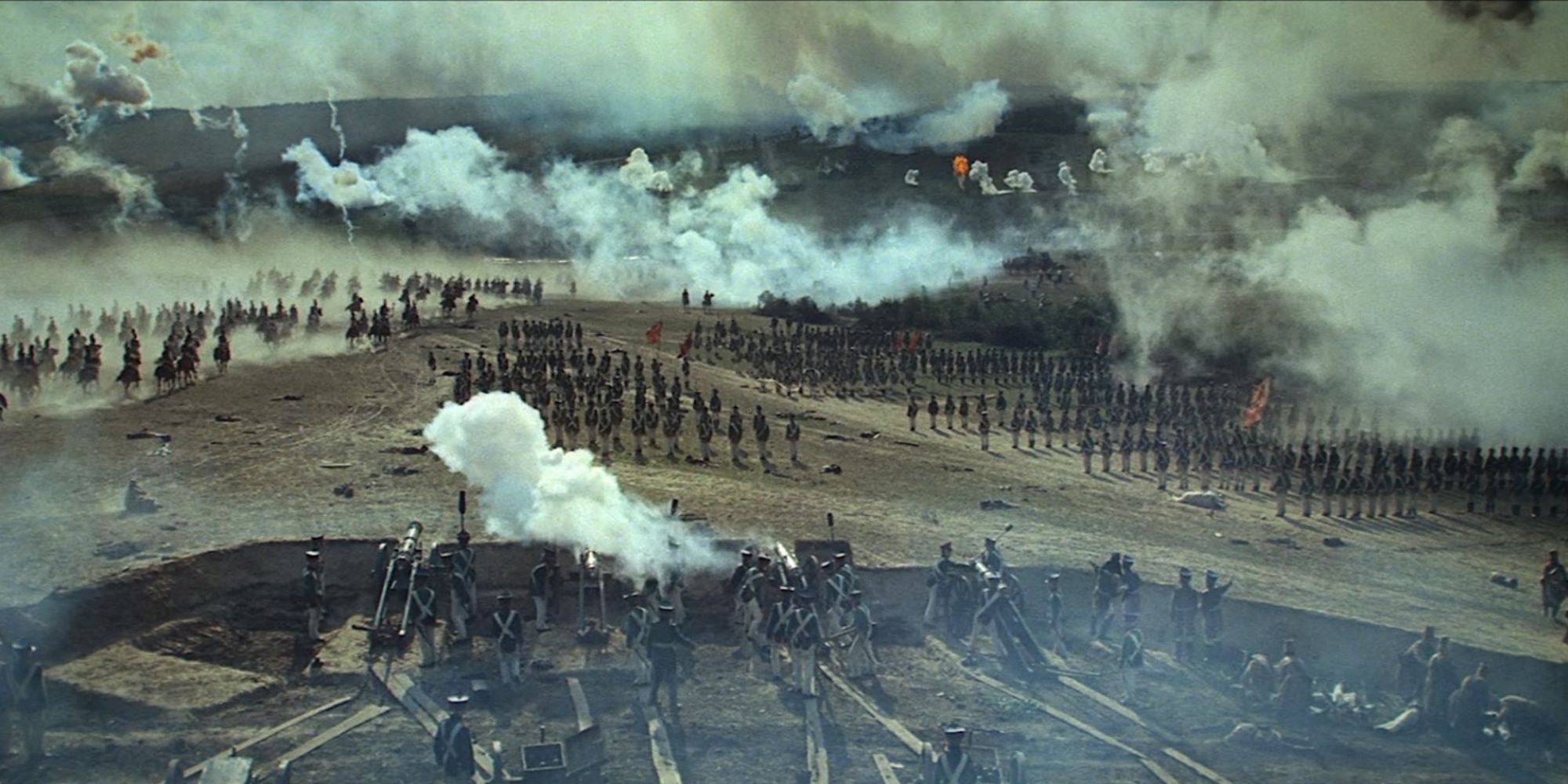Filmmakers who want to go big and impress viewers with things never seen before are likely fans of the epic genre. An epic movie is one that tends to be based on real events and/or real people, plays out over a runtime where an intermission often feels necessary, and has a tremendous amount of money put into production for the purpose of impressing audiences. Spectacle, scale, and length are what the epic genre is all about.
The following movies all fit into this genre for having most - if not all - of the aforementioned qualities. What follows will focus on epics that retell true stories or place fictionalized characters in historical settings. As such, sci-fi or fantasy epics are not included here (that's not intended to be a slight on the excellent The Lord of the Rings trilogy, for example). Those with time to spare and a desire to be awed ought to check the following films out, and these all-time iconic epics are ranked below from great to greatest.
25 'Gladiator' (2000)
Directed by Ridley Scott
No one can deny that Ridley Scott knows how to make historical epics, as this kind of movie represents a significant chunk of the titles within his vast filmography. There's a strong argument to be made that Gladiator - while perhaps not the most historically accurate - is Scott's overall best epic, and one of the most exciting films of its decade. It stars Russell Crowe as a Roman army general who's betrayed and forced to fight in gladiatorial combat, all the while plotting his revenge.
It begins with a huge battle sequence, sets up an emotional story, and then slowly builds to a dramatic and intense climax, staging several gripping - and amazingly well-crafted - action sequences along the way. Alongside The Lord of the Rings (2001-2003), Gladiator can be seen as a movie that made epics cool again in the early 2000s, and though it's unfortunate they might have gone out of fashion once more (superheroes were more the rage in the 2010s), at least it was fun while it lasted.
Gladiator
- Release Date
- May 5, 2000
- Director
- Ridley Scott
- Cast
- Russell Crowe , Joaquin Phoenix , Connie Nielsen , Oliver Reed , Richard Harris , Derek Jacobi
- Runtime
- 155 minutes
- Main Genre
- Action
24 'The Emigrants' (1971) & 'The New Land' (1972)
Directed by Jan Troell
The Emigrants and The New Land are two halves of the same story, with this duology being made as one whole epic, though it was released in two parts, perhaps because otherwise, it would demand its audience sit in a theater for 6.5 hours (even with an intermission, that could be daunting). The story follows a Swedish family during the mid-1800s that decides to leave home and make a perilous journey across the sea to start a new life in the purportedly prosperous America.
The Emigrants is mostly about the family's difficult life in Sweden and the difficult journey to the States, while The New Land feels more like a Western of sorts, showing the trials and tribulations that the family deals with while trying to settle. It's daunting, harrowing, grisly, and very sad in parts, but it's hard not to be impressed by the scale of this two-part film, as well as the performances from much of its cast, including Swedish superstars (and frequent Ingmar Bergman collaborators) Max von Sydow and Liv Ullmann.
23 'Spartacus' (1960)
Directed by Stanley Kubrick
Stanley Kubrick was always an ambitious filmmaker, so it makes sense that he made a handful of genuine epics during his directorial career. Spartacus was one of the biggest films he ever made, and his first movie that ran for more than 90 minutes. However, saying that is really underselling it, because the total runtime for Spartacus dwarfs the runtime of the four feature films Kubrick made in the 1950s, given this 1960 epic runs for a staggering 197 minutes.
Spartacus uses this runtime well, telling an expansive and action-packed historical story about a slave who leads an uprising, building a progressively larger army as he goes and proving himself a threat to those in Rome who held power back in the first century BC. Kirk Douglas gives one of his most memorable performances in the lead role here, the supporting cast - including Laurence Olivier, Charles Laughton, and Tony Curtis - impresses, and the battle scenes hold up extremely well.
Spartacus
- Release Date
- October 6, 1960
- Director
- Stanley Kubrick , Anthony Mann
- Cast
- Kirk Douglas , Laurence Olivier , Jean Simmons , Charles Laughton , Peter Ustinov , John Gavin , Nina Foch , John Ireland
- Runtime
- 197 Minutes
- Main Genre
- Biography
22 'Gone with the Wind' (1939)
Directed by Victor Fleming
There are many things that could be - and have been - said about Gone with the Wind in the 80+ years since its release. It's a movie that belongs to several different genres, and is able to bounce between them because it has an almost four-hour runtime to work with. Much of Gone with the Wind's about the troubled romance between Scarlett O'Hara and Rhett Butler, with plenty of melodrama attached, and it also plays out during - and shortly after - the American Civil War.
So it's a romance/drama/war film, and one of the earliest films that can be recognized as a classic Hollywood epic movie. Gone with the Wind has also been controversial, especially when watched today, due to some of its political and racial content, which can date the film as a whole to some extent. Nevertheless, the film is an important one historically - and one of the highest-grossing of all time - so it's hard to talk about classic epic films without at least giving it some acknowledgment.
Gone With the Wind
- Release Date
- December 15, 1939
- Director
- Victor Fleming , George Cukor , Sam Wood
- Cast
- Thomas Mitchell , Barbara O'Neil , Vivien Leigh , Evelyn Keyes , Ann Rutherford , George Reeves , Hattie McDaniel
- Runtime
- 238 minutes
21 'Reds' (1981)
Directed by Warren Beatty
Reds was certainly an ambitious undertaking for Warren Beatty, as this 195-minute historical drama was directed, produced, and co-written by him. Further, he starred in the movie alongside Diane Keaton, with those two being backed by a remarkable supporting cast that included the likes of Jack Nicholson, Paul Sorvino, M. Emmet Walsh, and even Gene Hackman in an unusually brief appearance.
It's an epic about an American journalist named John Reed, and the way his life was forever changed after getting wrapped up in the socialist revolution in Russia during the 1910s. Reds spends time on his tumultuous relationship with fellow writer Louise Bryant, as well as how Reed took what he learned of in Russia and tried to inspire similar change back in the U.S. It's a long and dense film, but worth sticking with for the complex ideas explored throughout, as well as for the strength of its great cast.
20 'The Leopard' (1963)
Directed by Luchino Visconti
An Italian film that stars renowned American actor Burt Lancaster, The Leopard takes place during a time of social upheaval in Italy, during the 1860s. At the center of the film is a wealthy family that intends to hold onto as much power and wealth as they can, even while the times around them seem to be changing. Lancaster's character is an aging prince who believes arranging the right kinds of marriages may be the key to surviving such societal changes.
The Leopard stands in contrast to some other iconic epics, as there's little sense of adventure, action, or even genuine romance here, and it's overall more of a drama, with a great deal of political intrigue and dialogue throughout. Yet its production values are impressive and complement the 3+ hour runtime well, making this much more than just an ordinary historical drama. Those with the time to spare who don't mind something patiently paced might want to check The Leopard out.
19 'Intolerance: Love’s Struggle Throughout the Ages' (1916)
Directed by D.W. Griffith
Most film buffs will appreciate how great movies were released as far back as the 1920s, but films made even earlier tend to get overlooked. The 1910s was when the feature film format began to take shape, and many broad cinematic genres/conventions came to be formed. D.W. Griffith was a leading figure from this time responsible for the development of the artform, and though the infamous The Birth of a Nation (1915) is his best-known, it's 1916's Intolerance: Love’s Struggle Throughout the Ages that's overall better and more deserving of recognition.
The latter serves as Griffith reflecting and commenting on some of the criticisms the former got, all the while being more ambitious and impressive from a technical perspective, as well as something that feels easier to watch nowadays. Across 197 minutes, Griffith tells several thematically linked stories from throughout history, bouncing between them with ease and presenting some truly staggering sights on screen that still look gargantuan to this day. The fact Intolerance is both a long and silent film may not make it the easiest thing to sit back and casually watch, but those interested in film history should give it a shot (and prioritize it over The Birth of a Nation).
18 'The Human Condition' Trilogy (1959-1961)
Directed by Masaki Kobayashi
There are three films that make up The Human Condition trilogy, and each when taken on its own would qualify as a groundbreaking epic. The three films - No Greater Love, Road to Eternity, and A Soldier’s Prayer - all exceed three hours in length, with the total runtime being a gargantuan 579 minutes. It's hard to differentiate them quality-wise, and they all add up to tell one coherent and tremendously moving story, so it's best to highlight them as one multi-part film.
The Human Condition revolves around a conscientious objector named Kaji, and the way he's continually challenged throughout World War II. It's a lengthy and intense look at Japan immediately before, during, and then after the Second World War, and is able to look at all these stages through the life of one man, thanks to its three parts and almost 10-hour length. It is exhausting and challenging, but intentionally so, and few other epics movies out there provide a comparable experience to absorbing all three parts of The Human Condition trilogy.
17 'The Ten Commandments' (1956)
Directed by Cecil B. DeMille
The biblical story of Moses and the Ten Commandments has been continually told and re-told throughout cinema history. Examples from at least the past few decades have included the underrated animated film The Prince of Egypt, as well as the unfortunately not-very-good Ridley Scott epic Exodus: Gods and Kings. Legendary American filmmaker Cecil B. DeMille was so enamored by the story that he even adapted The Ten Commandments to film twice: once in 1923, and then again in 1956.
It's the 1956 version that's perhaps the definitive one, and given it was DeMille's final film, it's safe to say that he ended his filmmaking career with a bang. It's a huge production, running for well over 3.5 hours and having special effects that were absolutely groundbreaking for their time. It tells one of the Bible's best-known stories with plenty of care and spectacle, and is the sort of ambitious epic movie that one doesn't have to be religious necessarily to appreciate.
The Ten Commandments
- Release Date
- October 5, 1956
- Director
- Cecil B. DeMille
- Cast
- Charlton Heston , Yul Brynner , Anne Baxter , Edward G. Robinson , Yvonne De Carlo , Debra Paget
- Runtime
- 220 minutes
16 'The Irishman' (2019)
Directed by Martin Scorsese
Not only is The Irishman up there with Martin Scorsese's best crime movies, but it's also safe to say that it's one of his best movies overall, regardless of genre. It's a gangster movie and a tragic story about aging, loneliness, and deep regret, following an elderly hitman as he reflects on his life of crime. Throughout the film, The Irishman reveals itself to be about the unstoppable nature of death, and the guilt that one can feel as it approaches and one realizes how a life was perhaps misspent.
Safe to say, The Irishman is therefore not exactly a fun movie, but it does have its exciting moments and features small well-needed comedic moments throughout (but never so many that they detract from the drama). If you can get past some occasionally imperfect de-aging effects, The Irishman is a staggering achievement from an aging yet wiser-than-ever filmmaker at the height of his directorial powers, bolstered by some all-time great performances from acting legends like Robert De Niro, Al Pacino, and Joe Pesci.
The Irishman
- Release Date
- November 27, 2019
- Director
- Martin Scorsese
- Cast
- Jesse Plemons , Robert De Niro , Anna Paquin , Al Pacino , Joe Pesci , Harvey Keitel
- Runtime
- 209 minutes
- Main Genre
- Crime
15 'Ben-Hur' (1959)
Directed by William Wyler
As demonstrated by aforementioned epics like Gone with the Wind and The Ten Commandments, Hollywood certainly knew how to go big during its Golden Age. Yet it's possible to see Ben-Hur - released the year before things got more radical in the 1960s - as a film that attempted to outdo all the comparable epics that came before. There's a strong argument to be made that this 1959 classic was successful in doing just that, thanks to it helping popularize the phrase "bigger than Ben-Hur."
Ben-Hur is set during the time of Christ, with its lead character - Judah Ben-Hur - being wronged by someone in a position of power, sold into slavery, and then becoming determined to seek revenge (here done through an iconic chariot race during the film's climax). Narratively, that gives it some similarities to subsequent epics like Spartacus and Gladiator, so anyone who's seen/enjoyed those without ever having gotten around to Ben-Hur ought to add it to their watchlist as soon as possible.
Ben-Hur
- Release Date
- November 18, 1959
- Director
- William Wyler
- Cast
- Charlton Heston , Jack Hawkins , Haya Harareet , Stephen Boyd , Hugh Griffith , Martha Scott
- Runtime
- 212 minutes
- Main Genre
- Action
14 'Napoleon' (1927)
Directed by Abel Gance
Napoleon Bonaparte had an undeniably eventful life, which means any successful biographical film that wants to cover as much of said life as possible is going to have to be long. Enter 1927's Napoleon, which is a silent epic that runs for about 5.5 hours, which sounds like it could well be long enough to appropriately condense a larger-than-life... well, life into a single film. However, Napoleon doesn't tell a complete life story. Director Abel Gance had significantly bigger plans.
Gance wanted this Napoleon to be one of six parts in an ongoing series that would combine to tell the entire life story of its titular character. As such, 1927's Napoleon mostly focuses on the figure's early life and military engagements, with plenty of story effectively left to be told once this mammoth movie is over. Still, for thoroughly unpacking numerous (but far from all) key events in Napoleon Bonaparte's life, and for being a groundbreaking technical masterpiece for its time, this epic remains one well worth devoting the time to.
13 'Barry Lyndon' (1975)
Directed by Stanley Kubrick
For as great as Spartacus was, some may come away from it feeling like it wasn't a true Stanley Kubrick film (and the stories of its troubled production might explain why). Made 15 years later, Barry Lyndon does feel effectively like a Stanley Kubrick epic, with far more recognizable stylistic touches and themes explored throughout. It gets psychological, darkly funny, and ultimately tragic, telling a story about one man's self-destructive quest to elevate his social standing in England during the 18th century.
Simply put, Barry Lyndon is one of the most beautiful-looking films of its decade, and one that tells what might sound like a familiar story in a fresh and exciting way. As the story goes, Kubrick wanted to make a Napoleon movie that never came to be, though ended up capturing the spirit of what might've been by making Barry Lyndon (much of a comprehensive Napoleon movie would also have to take place in the 18th century). It's sad Kubrick never made a Napoleon movie, but the fact he did make Barry Lyndon helps soften the blow.
Barry Lyndon (1975)
- Release Date
- December 18, 1975
- Director
- Stanley Kubrick
- Cast
- Ryan O'Neal , Marisa Berenson , Patrick Magee
- Runtime
- 185 minutes
- Main Genre
- Drama
12 'Ran' (1985)
Directed by Akira Kurosawa
By the mid-1980s, legendary Japanese filmmaker Akira Kurosawa was well into his 70s, yet showed no sign of slowing down. Indeed, Ran came out the same year Kurosawa turned 75, and the epic war drama can be seen as the culmination of the filmmaker's entire career (though it wasn't his final film, by any means). Ran combines historical figures from the 16th century with a narrative inspired by Shakespeare's King Lear, and the results are breathtaking, to say the least.
It follows the tragic story of an aging warlord attempting to divide up his land and assets between his three sons, only for betrayal, violence, and family conflict on an epic scale to unfold. Kurosawa's filmography is exceedingly strong, yet Ran still towers over many other (still great) movies within it, and is easily one of the filmmaker's very best. Its dramatic and eerie score, huge sets, dynamic use of color, and battle sequences packed with countless extras make it one film that's begging to be seen on as big a screen as possible.
11 'Children of Paradise' (1945)
Directed by Marcel Carné
One of the greatest classic epic movies that notably wasn't produced in Hollywood, Children of Paradise is instead a French production that runs for more than three hours and rivals anything comparable being made in the U.S. It's one of the greatest films of the 1940s, and its expansive story revolves around one woman who has several men all in love with her, making the entire film revolve around a love pentagon (arguably), rather than the more standard (and derided) triangle.
Children of Paradise has the time to flesh out plenty of characters and craft a simple yet thoroughly engrossing storyline that revolves around love, loss, heartbreak, and theater with a rich setting of Paris during the 1830s. The scope and effortless storytelling on offer ensure this epic still feels like a monumental - and thoroughly watchable - achievement to this date, and it's deserving of getting recognized alongside various other more well-known grand films from this era.
10 'Doctor Zhivago' (1965)
Directed by David Lean
Few filmmakers mastered the epic genre quite like David Lean, with various films of his exceeding 2.5 hours in length and being classifiable as epic movies. Doctor Zhivago might not be his greatest work, but it's up there, and is worth acknowledging for the fact that it's also easily one of his biggest movies. The film spans numerous years of Russian history, telling a story about warfare, class conflict, and love, particularly focusing on World War I and the impact of Russia's 1917 October Revolution.
Doctor Zhivago offers all-time great performances from beloved actors like Julie Christie and Omar Sharif, an unforgettable score by Maurice Jarre, and the sort of grand production values and scenes of spectacle one would expect from a David Lean epic. It's a distinctly old-fashioned film, but arguably one that served as a great send-off to the traditional Hollywood epic, given the epic movies in later decades did feel somehow different from the ones most popular in the 1950s and '60s.
Doctor Zhivago
- Release Date
- December 22, 1965
- Director
- David Lean
- Cast
- Omar Sharif , Julie Christie , Geraldine Chaplin , Rod Steiger , Alec Guinness , Tom Courtenay
- Runtime
- 197
- Main Genre
- Drama
9 'Patton' (1970)
Directed by Franklin J. Schaffner
Even if the central performance from George C. Scott was the only part of Patton that was any good, it would still hold up as a biographical war movie worth watching, because he really is that magnetic in the title role. It's certainly fair to call him the best part of the movie, but thankfully, the rest of the film around him and his acting is also high-quality, with a well-told story, impressively large-scale sequences, and an attention to detail that makes it understandable why Patton was such a success at the Oscars.
It's a film all about General George S. Patton, and the dramatic events he took part in as a renowned authority figure during America's involvement in World War II. By all accounts, Patton was a larger-than-life individual, and so casting the reliably bombastic George C. Scott in the lead role was a stroke of genius. His overwhelming performance matches the overall scale and immensity of the movie around him, all in all making Patton one great epic film.
Patton
- Release Date
- April 2, 1970
- Director
- Franklin J. Schaffner
- Cast
- George C. Scott , Karl Malden , Stephen Young , Michael Strong , Carey Loftin , Albert Dumortier
- Runtime
- 172 Minutes
- Main Genre
- Biography
8 'Giant' (1956)
Directed by George Stevens
Is there a better name for an epic movie than Giant? This classic from the 1950s certainly earns the right to be called such a thing, because Giant's undeniably huge when it comes to both its runtime and scope. Regarding the former, it clocks in at 201 minutes long, and regarding the latter, it follows a Texas family over three generations and numerous years, with various conflicts - a seeming inevitability once oil is discovered on one's land - playing out between alternating moments of success and tragedy.
The cast of Giant is also, unsurprisingly, pretty giant, with the leads here played by Elizabeth Taylor and Rock Hudson at their respective bests. Given the tragic story of James Dean - and the fact Giant was his last of three movies to get released - he does loom large over the film, and gives a frequently scene-stealing performance in a dynamic supporting role. The film also looks stunning, with plenty of Western iconography and visuals while also telling a grander - and oftentimes more moving - story than one might expect in a more run-of-the-mill Western movie.
Giant
- Release Date
- November 24, 1956
- Director
- George Stevens
- Cast
- Elizabeth Taylor , Rock Hudson , James Dean , Carroll Baker , Jane Withers , Chill Wills
- Runtime
- 201
- Main Genre
- Drama
7 'Once Upon a Time in America' (1984)
Directed by Sergio Leone
It's always difficult to rank the movies of Sergio Leone, even if there were only seven feature films he ended up directing during his regrettably short filmmaking career. That being said, deciding what Sergio Leone's biggest and most ambitious movie is proves an easier task, as it's ultimately his final film (and one of his few non-Westerns): the decades-spanning crime epic that is Once Upon a Time in America.
Across almost four hours, the movie spends time with a group of thoroughly unlikable characters at three stages in their lives: when they're young and naive (and therefore slightly more sympathetic) boys, when they're ruthless young men benefiting from Prohibition, and then when they're older and distant, perhaps filled with regret for what they did decades before. Once Upon a Time in America doesn't glorify their acts, but sitting with what these characters are capable of can make for a distressing watch at times. The film is undeniably powerful, though, and the central performance by Robert De Niro is one of his best. As for the score by Ennio Morricone? It's so good it's worth the price of admission alone.
Once Upon a Time in America
- Release Date
- May 23, 1984
- Director
- Sergio Leone
- Cast
- Robert De Niro , James Woods , Elizabeth McGovern , Joe Pesci , Burt Young , Tuesday Weld , Treat Williams
- Runtime
- 139
6 'War and Peace' (1966)
Directed by Sergey Bondarchuk
The only way to properly adapt Leo Tolstoy's mammoth novel War and Peace is to make it as epic an epic movie as possible. Hollywood produced a decent attempt with a 1956 adaptation that ran for 3.5 hours, but arguably, even something with that runtime wasn't enough. Enter the Russian adaptation from the mid-1960s, which was released in four parts all adding up to one huge film that has a runtime double what the American adaptation had (in total, this War and Peace goes for 422 minutes).
The film is filled with grand battles from the Napoleonic Wars, though there's also a good deal of time spent on various romances, political intrigue, and spectacular celebrations/parties. War and Peace - perhaps a little like the aforementioned Ben-Hur - felt like an epic that was trying to go bigger than anything that had come before, and it was arguably successful. It's staggering how large-scale many sequences get here, with authentic production design and certain scenes - including some battles - including thousands of extras.


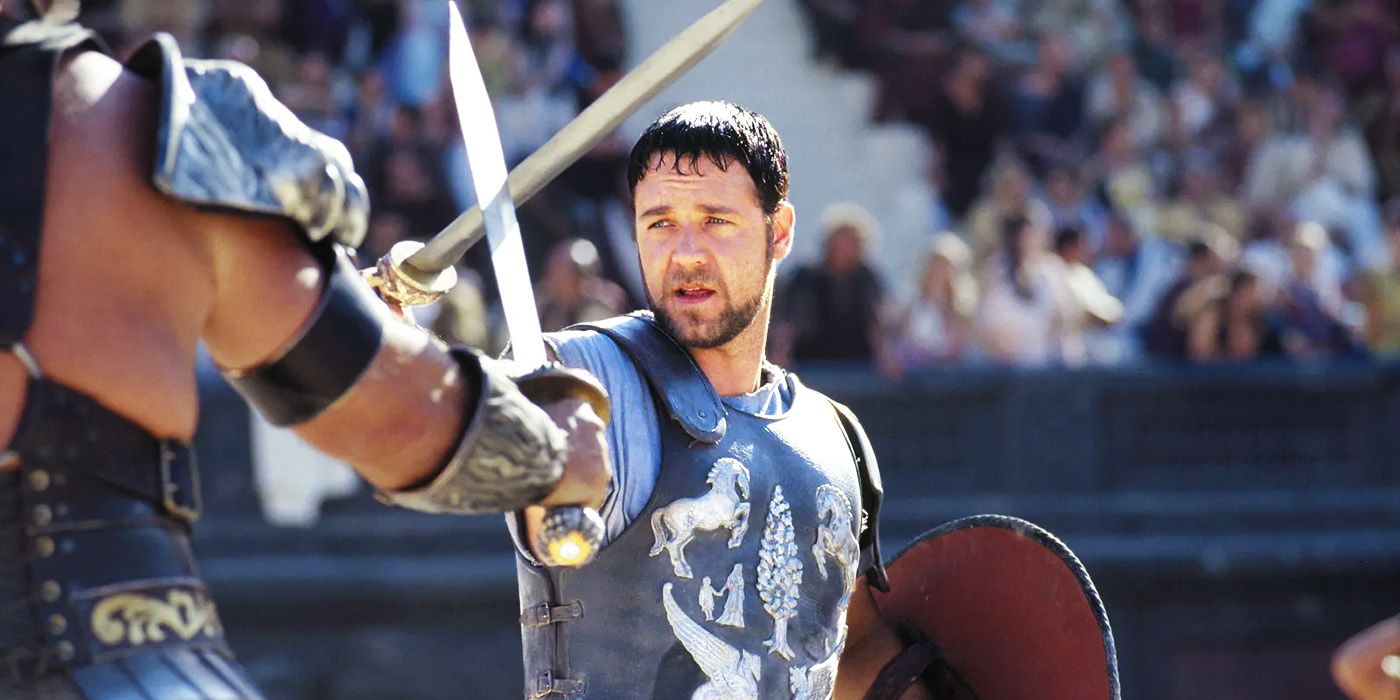
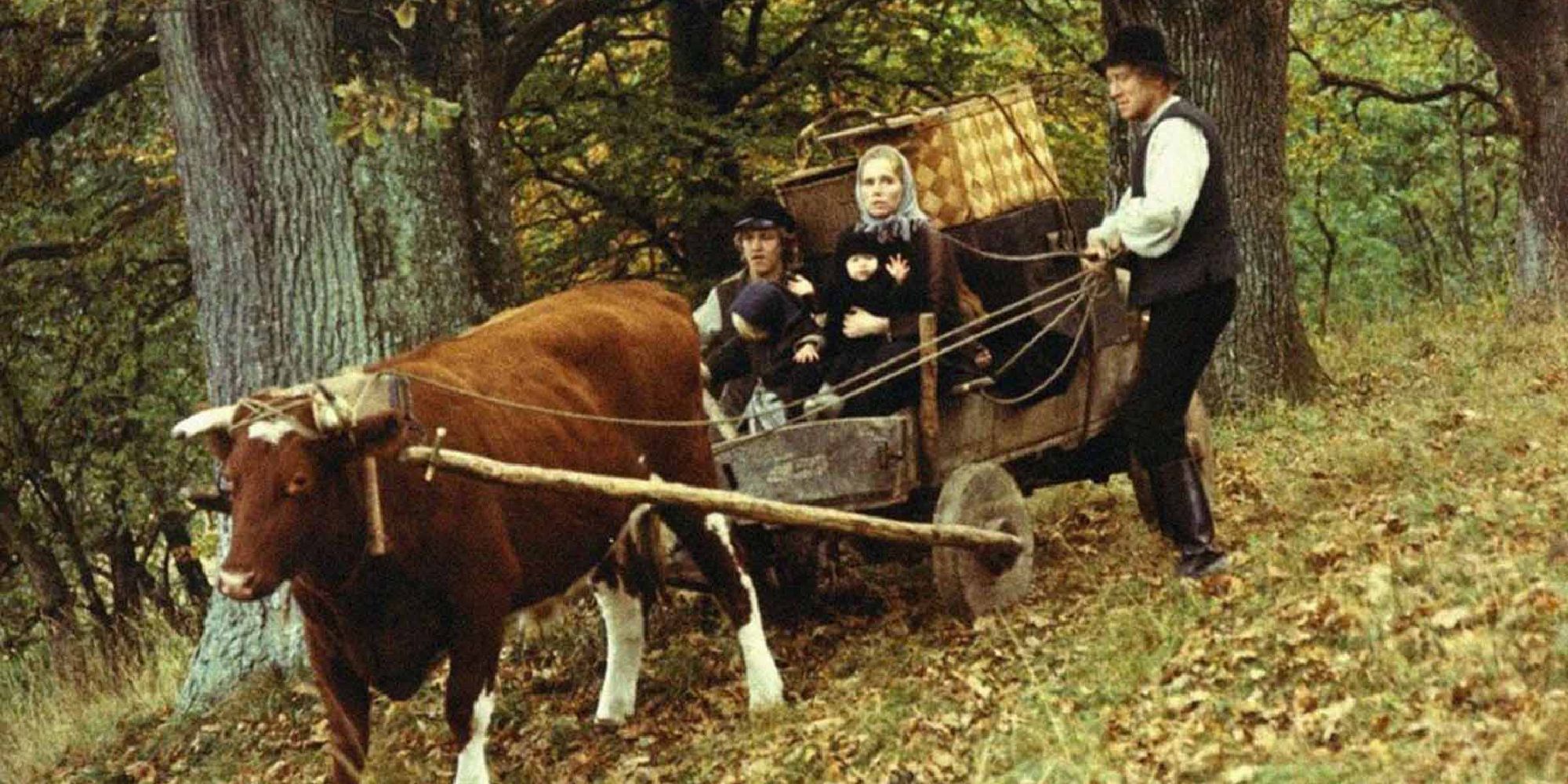
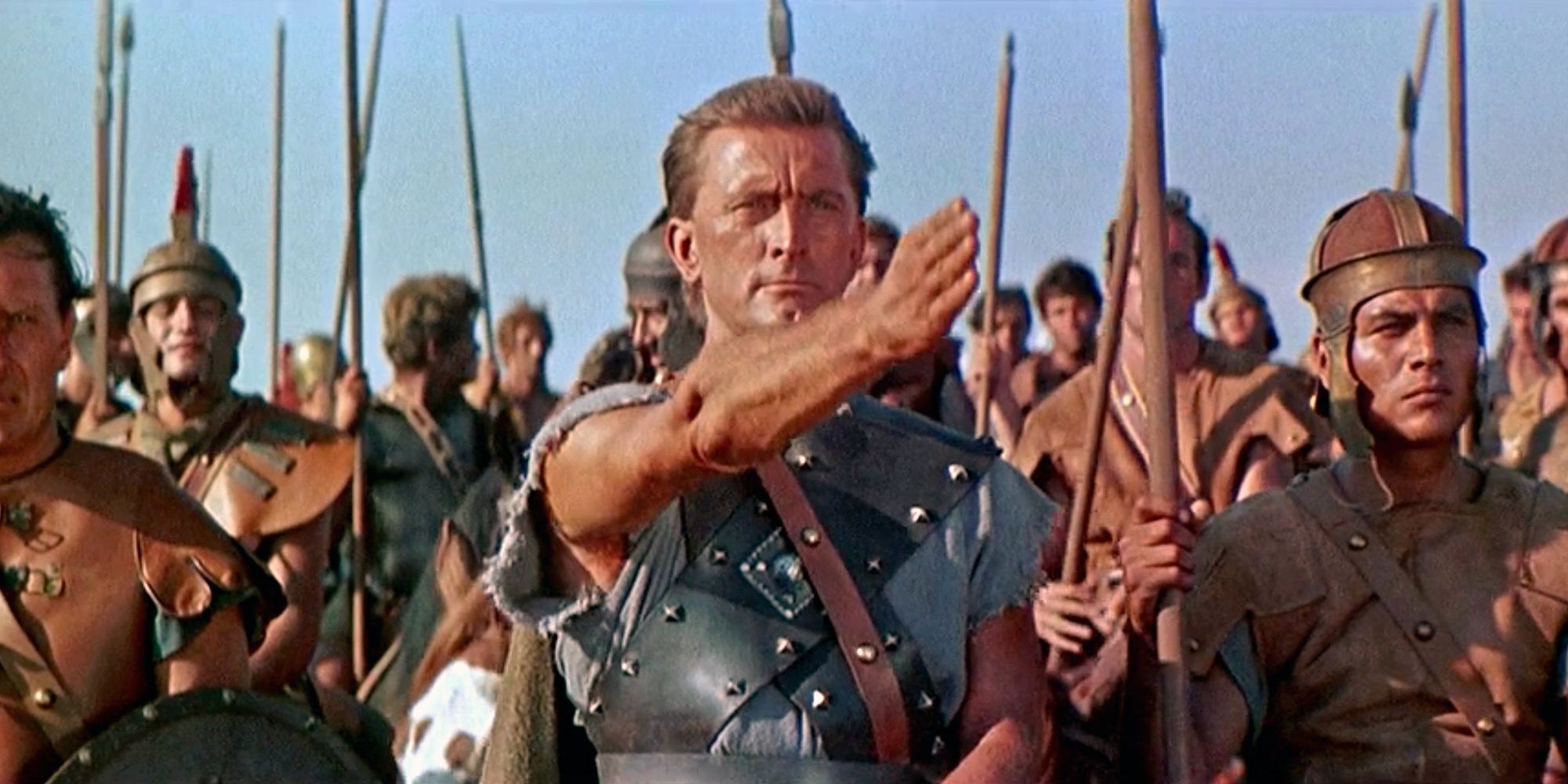
.jpg)
